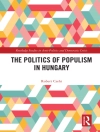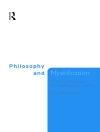John Lachs, one of American philosophy’s most distinguished interpreters, turns to William James, Josiah Royce, Charles S. Peirce, John Dewey, and George Santayana to elaborate stoic pragmatism, or a way to live life within reasonable limits. Stoic pragmatism makes sense of our moral obligations in a world driven by perfectionist human ambition and unreachable standards of achievement. Lachs proposes a corrective to pragmatist amelioration and stoic acquiescence by being satisfied with what is good enough. This personal, yet modest, philosophy offers penetrating insights into the American way of life and our human character.
Spis treści
Acknowledgments
Introduction
1. What Can Philosophy Do to Make Life Better?
2. Stoic Pragmatism
3. Infinite Obligations
4. An Ontology for Stoic Pragmatism
Epilogue: The Personal Value and Social Usefulness of Philosophy
O autorze
John Lachs is Centennial Professor of Philosophy at Vanderbilt University.












